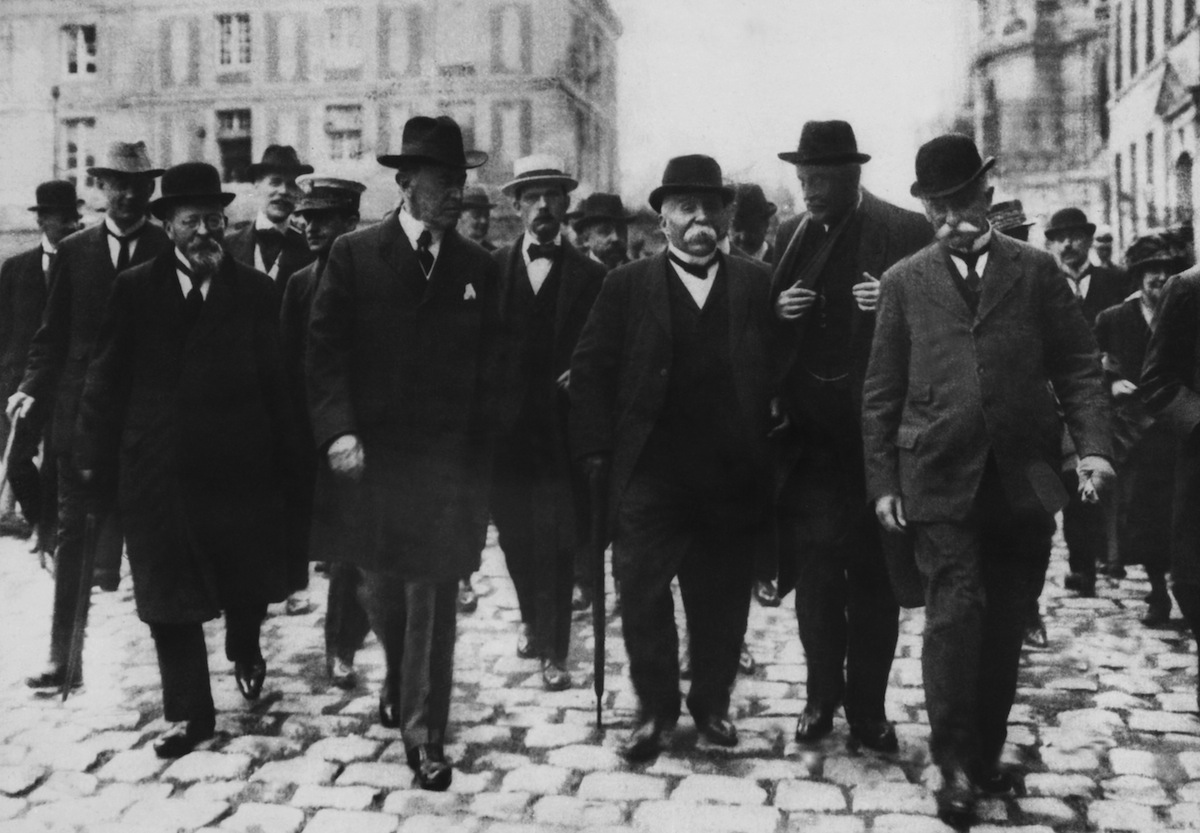
Chuck Schumer is just one senator, but his announcement that he will oppose the international nuclear agreement with Iran is being hailed as a potential game-changer. House and Senate Republicans are unanimous in their determination to defeat the President’s signature diplomatic achievement, and Democrats face strong pressure from the powerful lobby AIPAC to reject it as well. If enough other Democrats in the House and Senate follow suit, Congress could override a presidential veto, defeat the agreement and leave the United States and Israel totally isolated within the world community. While foreign policy has often divided Congress and the executive branch, cases in which Congress actually stopped a major foreign policy initiative are extremely rare. If that happens, there will be only one historical moment to which the deal’s defeat can genuinely be compared: the Senate’s refusal, in 1919 and 1920, to ratify the Treaty of Versailles. There are noteworthy parallels between the two situations, and the consequences of another presidential defeat could be almost as serious as the end of Woodrow Wilson’s dreams of peace.
Confronted in 1914 by the First World War, President Wilson had spent almost two and a half years heroically trying to bring it to a peaceful resolution. In 1915, after the sinking of the Lusitania by a German submarine, he had resisted Theodore Roosevelt’s demands for immediate intervention. But in the spring of 1917, when Germany answered his last call for a “peace without victory” with a renewal of unrestricted submarine warfare, Wilson saw no option but to intervene. Yet he remained politically aloof from his allied partners, and in January of 1918, in his Fourteen Points, he held out his vision of a new world based on law, equality and what became the League of Nations. But, when the war ended in November 1918 with the collapse of Germany, the French and British—despite Wilson’s presence in Paris and his enormous international popularity—insisted on relatively harsh and unequal terms for Germany. The treaty Wilson brought home for ratification struck many liberals as a betrayal of his ideals.
Wilson, like Barack Obama, also had domestic political problems. Twice he had been elected without winning a majority of the votes cast. In the Congressional elections of 1918 he appealed to the people to elect a Democratic Congress to strengthen his hand in negotiations, but the Republicans won instead. Like Barack Obama, Wilson was a somewhat aloof leader who had little patience with his intellectual inferiors. He made no attempt to involve Republicans or Democrats from Congress in his negotiations. He also refused to accept relatively harmless Congressional reservations about the deal. The Senate eventually voted down the treaty, which failed to achieve a two-thirds majority.
The consequences were immense. When the treaty failed, France lost a promised Anglo-American guarantee of its border with Germany, and the United States washed its hands of European problems, with the exception of the war debts it still hoped to collect. The feeling that Washington could not be trusted to follow through on its noble declarations prevented the U.S. from regaining world leadership until 1941, when the Second World War was well underway. Rather than entering a new era of law and diplomacy, the world sank into anarchy.
Today, Barack Obama has even fewer cards to play than Wilson. There is not the slightest chance of his getting a single Republican vote in Congress, and his own party will—it now appears—be split. His deal with Iran represents a critical, desperately needed new departure in American foreign policy: an attempt to live with hostile regimes by engaging them diplomatically, rather than either going to war with them or pursuing an endless, futile confrontation. The deal also has the backing of the U.N. Security Council and of almost every other nation on earth, except Israel. And its failure would leave Iran utterly free to pursue any nuclear program that it wants. Like the Senate’s action in 1920, blocking the deal would end any possibility of genuine American global leadership for some time. If the agreement fails, the world’s new slide into anarchy will accelerate, with consequences we cannot foresee, even with the help of history. And that won’t be all the Democratic Party has to worry about if the President is beaten. In 1920, in the election after the Democrats failed to get the treaty through, the Republican candidate won in a landslide.

Historians explain how the past informs the present
David Kaiser, a historian, has taught at Harvard, Carnegie Mellon, Williams College, and the Naval War College. He is the author of seven books, including, most recently, No End Save Victory: How FDR Led the Nation into War. He lives in Watertown, Mass.
More Must-Reads from TIME
- L.A. Fires Show Reality of 1.5°C of Warming
- Home Losses From L.A. Fires Hasten ‘An Uninsurable Future’
- The Women Refusing to Participate in Trump’s Economy
- Bad Bunny On Heartbreak and New Album
- How to Dress Warmly for Cold Weather
- We’re Lucky to Have Been Alive in the Age of David Lynch
- The Motivational Trick That Makes You Exercise Harder
- Column: No One Won The War in Gaza
Contact us at letters@time.com



